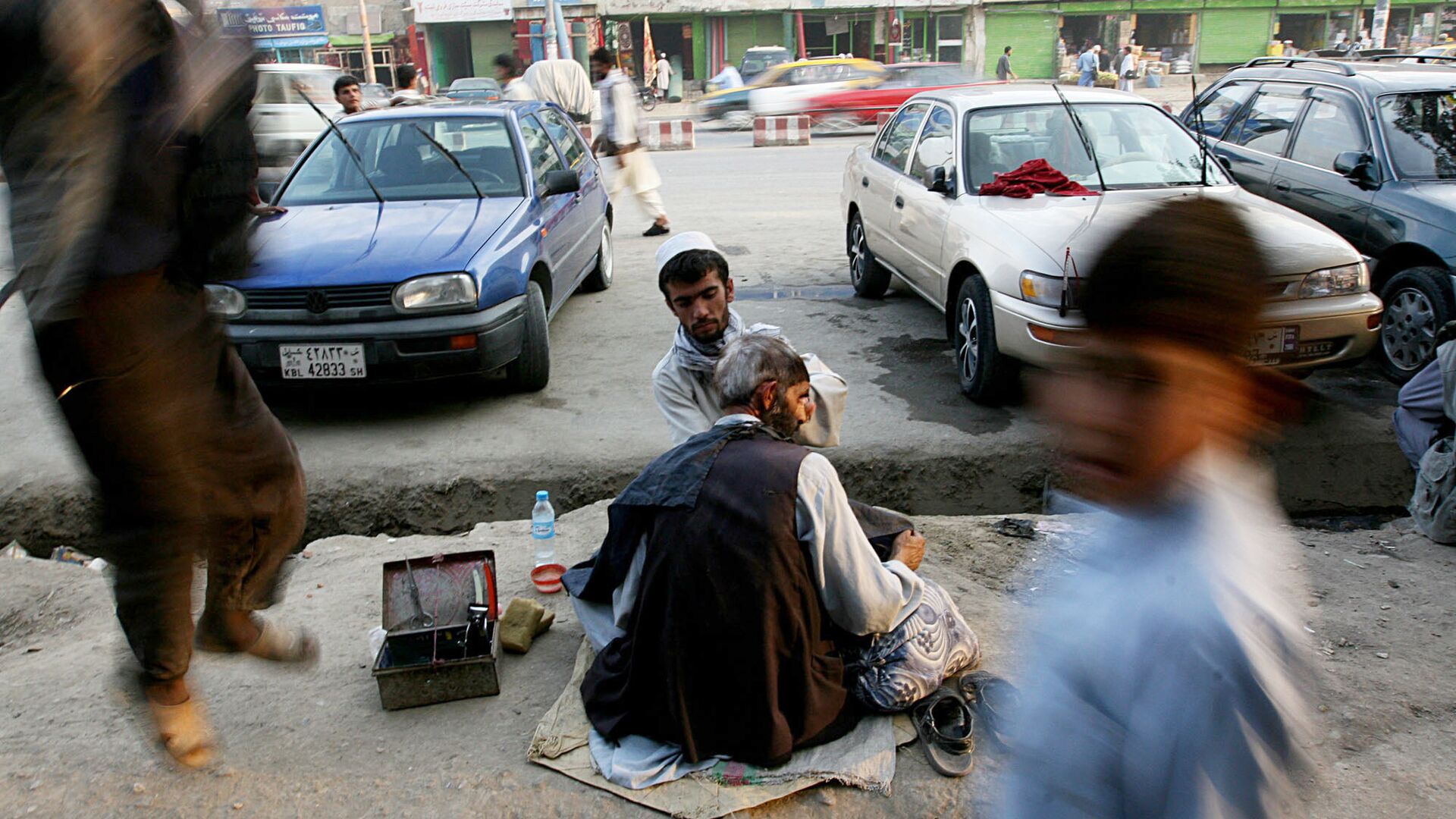https://sputnikglobe.com/20211228/observers-after-20-year-war-us-simply-abandoned-afghanistan-without-political--economic-solution-1091863905.html
Observers: After 20-Year War US Simply Abandoned Afghanistan Without Political & Economic Solution
Observers: After 20-Year War US Simply Abandoned Afghanistan Without Political & Economic Solution
Sputnik International
Afghanistan is facing humanitarian disaster; while the US refuses to unfreeze Afghan funds, Organisation of Islamic Cooperation (OIC) proposed establishing a humanitarian trust fund to provide aid to the Afghan population.
2021-12-28T17:25+0000
2021-12-28T17:25+0000
2022-10-19T20:11+0000
pakistan
us
asia
russia
china
afghanistan
taliban
us sanctions
afghanistan war
frozen funds
https://cdn1.img.sputnikglobe.com/img/07e5/09/1c/1089469755_0:104:2000:1229_1920x0_80_0_0_8196d8e05cba37fd66e194a73e99ab39.jpg
December's extraordinary OIC summit on Afghanistan was convened at the initiative of Saudi Arabia, which is the chair of the current session. Taliban* Foreign Minister Amir Khan Muttaqi attended the meeting among other delegates as no nations have yet formally recognised the Taliban government."The 17th Session of the conference of the Council of Foreign Ministers of the OIC comes at a time when the US had completely abandoned Afghanistan without a political and economic solution", says Sabtain Ahmed Dar, a Pakistani academic who teaches politics and international relations at the School of Integrated Social Sciences (SISS) at the University of Lahore.Afghanistan's Frozen Reserves & Dire Humanitarian SituationAccording to Dar, 23 million out of 40 million Afghans are facing hunger; health facilities are overflowing with malnourished children; the northern and western parts of the country are facing shortages of gas and logistical support; 70% of teachers are not paid, while thousands of children are out of schools.The problem is exacerbated by the fact that the US froze about $9.5 billion in assets of Afghanistan's Central Bank after the Islamist group seized Kabul in August. On 13 September, Taliban spokesman Suhail Shaheen highlighted in an interview with Sputnik that the Afghan new caretaker government was ready to take all possible legal steps to unfreeze Afghanistan's foreign assets in the US.However, on 19 October, US Deputy Treasury Secretary Wally Adeyemo told the Senate Banking Committee that he sees no situation where the Taliban would be allowed access to the frozen Afghan reserves.Taliban Foreign Minister Amir Mottaqi on 17 November urged the US Congress in an open letter to release the funds and ease tensions. Mottaqi warned American lawmakers that the ongoing economic turmoil in Afghanistan could prompt mass migration that "will consequently create further humanitarian and economic issues".To at least partially tackle the crisis, OIC members decided to establish a humanitarian trust fund to support Afghans, the Pakistani academic underscores.US Has No Programme for Future Development of AfghanistanIn addition to Muslim nations, which have embarked on a mission to save Afghanistan from collapse, Russia and China could also play a crucial role for the country's stability, according to Sabtain Ahmed Dar.The Pakistani academic notes that for Moscow and Beijing, the withdrawal of US troops from Afghanistan was a "strategic gain" that could help China, in particular, to integrate the Central Asian state into its broad Belt and Road Initiative (BRI). On the other hand, it is also in the interest of Islamabad and Kabul that "Russia and China actively engage the international community to resolve the crisis in Afghanistan", he believes.Following the hasty US-NATO withdrawal from Afghanistan, the countries of the region have been left to tackle the unfolding humanitarian and political dilemmas in the Central Asian state on their own, according to Fred Weir, Russia correspondent for the Boston-based Christian Science Monitor.If something is to be done, "it will be the countries of the region who will have to take the lead in that", believes Weir.However, Russian President Vladimir Putin noted during his 23 December presser – in a clear reference to the US and its NATO allies – that those nations which were present in Afghanistan for 20 years and inflicted great damage on it should now take care of the Central Asian country.Why is Recognition a Problem for the Interim Afghan Gov't?The agenda for the latest OIC meeting did not include recognition of the Taliban leadership by the Muslim world, but focused on rescuing them first from the economic and social crisis, says Sabtain Ahmed Dar.The question of the recognition of the Taliban government is crucially important for Afghanistan's sovereignty and independence, believes Dar."If the Taliban government is not recognised by the international community or Muslim World, Afghanistan will become a closed society detached from the entire world", the Pakistani academic says, adding that foreign investment, expertise, and help from the world depends on this recognition, which, in its turn, depends upon the conduct and ability of the Taliban to govern Afghanistan.The Taliban interim authorities were formed in September 2021. Even though the Afghan caretaker government is not recognised, the Taliban can be considered the country's "legal" authorities and can be dealt with on the international arena, argued Professor Ben Saul, Challis Chair of International Law at the University of Sydney, Australia, in his 15 December op-ed for the Hague-based think tank International Centre for Counter Terrorism (ICCT).According to Saul, currently many more states than in the 1990s have interests in cooperating with the Taliban, which in some sense raises the probability of its future recognition. These potential spheres of collaboration include "counter-terrorism, counter-narcotics, border security, economic development (such as infrastructure and mining), or technical assistance".Last week, President Putin noted that Moscow is "working with all [its] international partners to come up with a consolidated decision" regarding possible recognition of the Taliban. Earlier, in October, the Russian president said that the Afghan Islamic organisation may be excluded from the ban list through the UN Security Council if the situation in Afghanistan continues to improve. The same month, nine states participating in the Moscow Format Consultations, acknowledged that "practical engagement with Afghanistan needed to take into account the new reality, that is the Taliban coming to power in the country, irrespective of the official recognition of the new Afghan government by the international community".Five Factors of Afghanistan's StabilityThe viability of the Taliban government as well as stability of the political and economic situation in Afghanistan depends on five factors, according to Dar:First, the Taliban government needs to counter terrorism and politically reconcile to a point where intra-Afghan parties are incorporated to govern the country with a policy of inclusiveness.Second, Afghanistan has to strike agreements with international financial institutions to establish a new monetary framework.Third, the Taliban should protect elite Afghan families who have the capital and expertise to revive the country's core industrial infrastructure and give a boost to the economy.Fourth, the Taliban must establish joint ventures of state institutions to provide basic services to Afghans and also let the private sector work independently to contribute to society.Fifth, security must be considered at all levels by the Taliban government. It must deepen social inclusion to eradicate unnecessary fear and uncertainty from the mind of the general public.It is too early to claim that breakthroughs will come immediately in short intervals, the Pakistani academic highlights, adding that only concerted actions of regional and external players could help the country rebuild its economy.*The Taliban is an organisation under UN sanctions over terrorist activities.
https://sputnikglobe.com/20211016/french-politician-us-has-moral-and-legal-obligation-to-unblock-afghan-assets--let-the-nation-be-1089967357.html
https://sputnikglobe.com/20211124/taliban-wants-to-discuss-with-us-recognition-of-its-govt-and-unfreezing-of-afghan-assets-1090981322.html
https://sputnikglobe.com/20210913/how-chinas-realpolitik-approach-to-venezuela-iran--afghanistan-upends-us-geopolitical-game-1089039446.html
https://sputnikglobe.com/20211217/russia-seeks-to-reconnect-afgan-banks-to-swift-payment-system-1091591956.html
https://sputnikglobe.com/20210913/new-afghan-govt-to-take-every-legal-step-possible-to-lift-us-asset-freeze-taliban-says-1089032736.html
https://sputnikglobe.com/20210910/twenty-years-after-911-us--nato-allies-less-safe-and-closer-to-economic-abyss-analyst-says-1088945396.html
pakistan
russia
china
afghanistan
Sputnik International
feedback@sputniknews.com
+74956456601
MIA „Rosiya Segodnya“
2021
News
en_EN
Sputnik International
feedback@sputniknews.com
+74956456601
MIA „Rosiya Segodnya“
Sputnik International
feedback@sputniknews.com
+74956456601
MIA „Rosiya Segodnya“
afghanistan war, humanitarian disaster, taliban interim government, afghan frozen funds, organisation of islamic cooperation, humanitarian trust fund
afghanistan war, humanitarian disaster, taliban interim government, afghan frozen funds, organisation of islamic cooperation, humanitarian trust fund
Observers: After 20-Year War US Simply Abandoned Afghanistan Without Political & Economic Solution
17:25 GMT 28.12.2021 (Updated: 20:11 GMT 19.10.2022) Pakistan on 19 December hosted an extraordinary meeting of the Organisation of Islamic Cooperation (OIC) on Afghanistan, bringing together envoys from 57 Islamic nations, as well representatives from Russia, China, the US, the EU, and the UN. What are Afghanistan's major challenges after four months of official Taliban* rule?
December's extraordinary OIC summit on Afghanistan was convened at the initiative of Saudi Arabia, which is the chair of the current session. Taliban* Foreign Minister Amir Khan Muttaqi attended the meeting among other delegates as no nations have yet formally recognised the Taliban government.
"The 17th Session of the conference of the Council of Foreign Ministers of the OIC comes at a time when the US had completely abandoned Afghanistan without a political and economic solution", says Sabtain Ahmed Dar, a Pakistani academic who teaches politics and international relations at the School of Integrated Social Sciences (SISS) at the University of Lahore.
Afghanistan's Frozen Reserves & Dire Humanitarian Situation
According to Dar, 23 million out of 40 million Afghans are facing hunger; health facilities are overflowing with malnourished children; the northern and western parts of the country are facing shortages of gas and logistical support; 70% of teachers are not paid, while thousands of children are out of schools.
The problem is exacerbated by the fact that the US froze about $9.5 billion in assets of Afghanistan's Central Bank after the Islamist group seized Kabul in August. On 13 September,
Taliban spokesman Suhail Shaheen highlighted in an interview with Sputnik that the Afghan new caretaker government was ready to take all possible legal steps to unfreeze Afghanistan's foreign assets in the US.
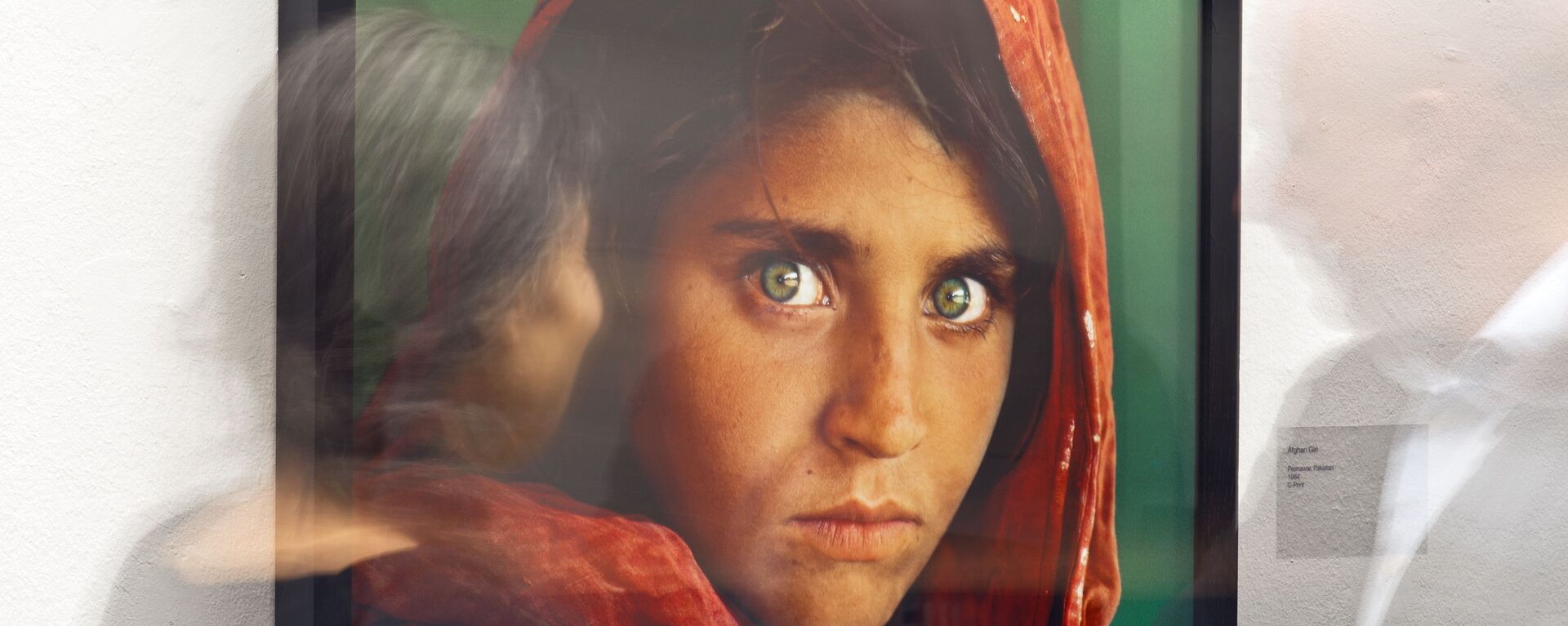
16 October 2021, 11:02 GMT
However, on 19 October, US Deputy Treasury Secretary Wally Adeyemo told the Senate Banking Committee that he sees no situation where the Taliban would be allowed access to the frozen Afghan reserves.
Taliban Foreign Minister Amir Mottaqi on 17 November urged the US Congress in an open letter to release the funds and ease tensions. Mottaqi warned American lawmakers that the ongoing economic turmoil in Afghanistan could prompt mass migration that "will consequently create further humanitarian and economic issues".
To at least partially tackle the crisis, OIC members decided to establish a humanitarian trust fund to support Afghans, the Pakistani academic underscores.
"This trust fund will be set up under the umbrella of the Islamic Development Bank (IDB)", explains Dar. "Its success depends on how much money the Muslim states would collect for Afghanistan… The new trust fund would provide a cover for Muslim states to aid without engaging directly with the Afghan Taliban".
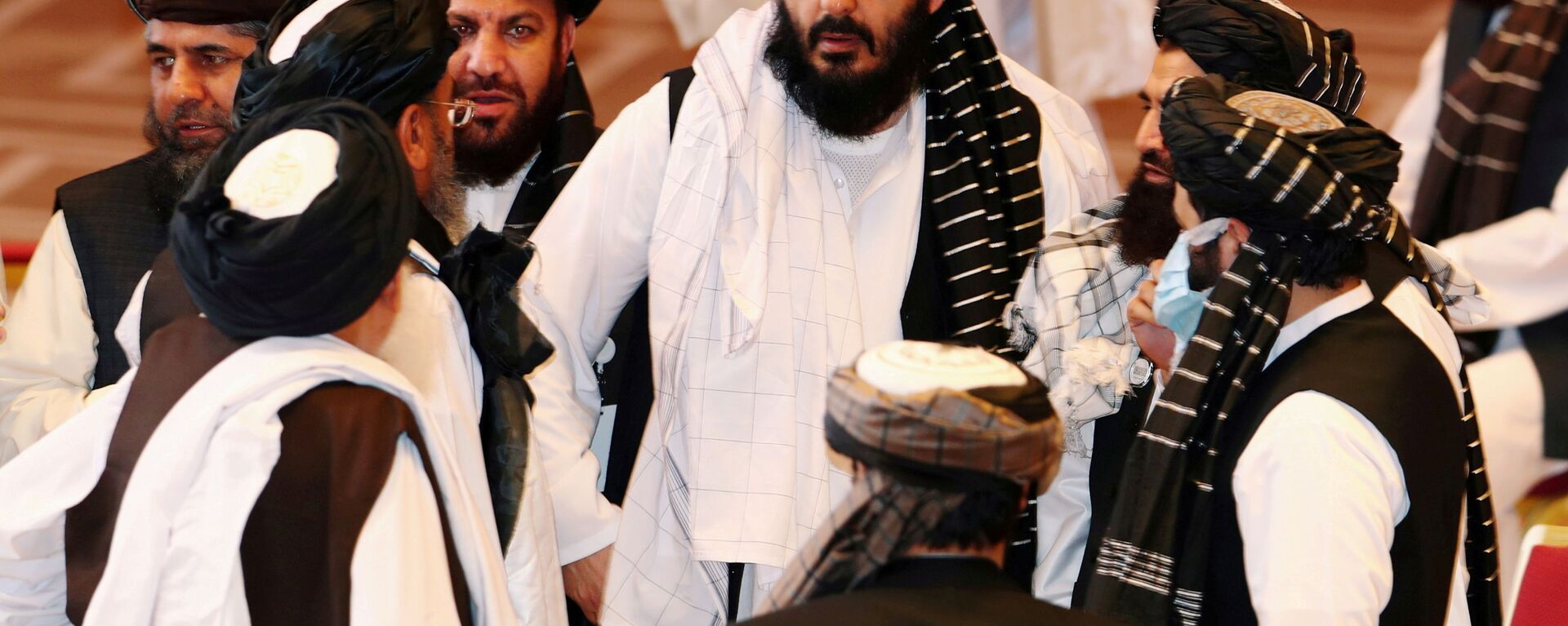
24 November 2021, 10:04 GMT
US Has No Programme for Future Development of Afghanistan
In addition to Muslim nations, which have embarked on a mission to save Afghanistan from collapse, Russia and China could also play a crucial role for the country's stability, according to Sabtain Ahmed Dar.
The Pakistani academic notes that for Moscow and Beijing, the withdrawal of US troops from Afghanistan was a "strategic gain" that could help China, in particular, to integrate the Central Asian state into its broad Belt and Road Initiative (BRI). On the other hand, it is also in the interest of Islamabad and Kabul that "Russia and China actively engage the international community to resolve the crisis in Afghanistan", he believes.
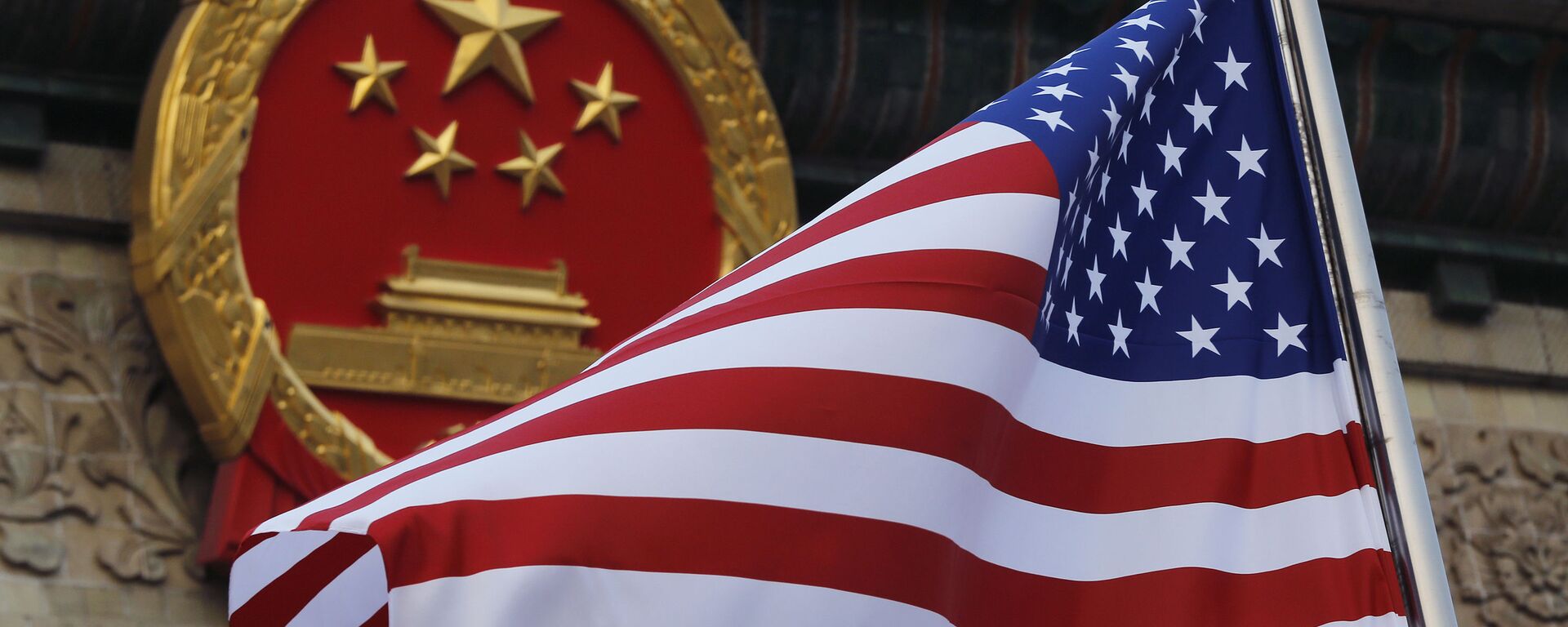
13 September 2021, 16:30 GMT
Following the hasty US-NATO withdrawal from Afghanistan, the countries of the region have been left to tackle the unfolding humanitarian and political dilemmas in the Central Asian state on their own, according to Fred Weir, Russia correspondent for the Boston-based Christian Science Monitor.
"The Americans left Afghanistan and they are not coming back", Weir says. "They clearly don't have any programme for future relations with Afghanistan. So it's the countries of the region, Russia, China, India, Pakistan who will have to deal with that. They have the Shanghai Cooperation Organisation (SCO) where they can discuss their common approaches to the problems of Afghanistan".
If something is to be done, "it will be the countries of the region who will have to take the lead in that", believes Weir.
However, Russian President Vladimir Putin noted during his 23 December presser – in a clear reference to the US and its NATO allies – that those nations which were present in Afghanistan for 20 years and inflicted great damage on it
should now take care of the Central Asian country.
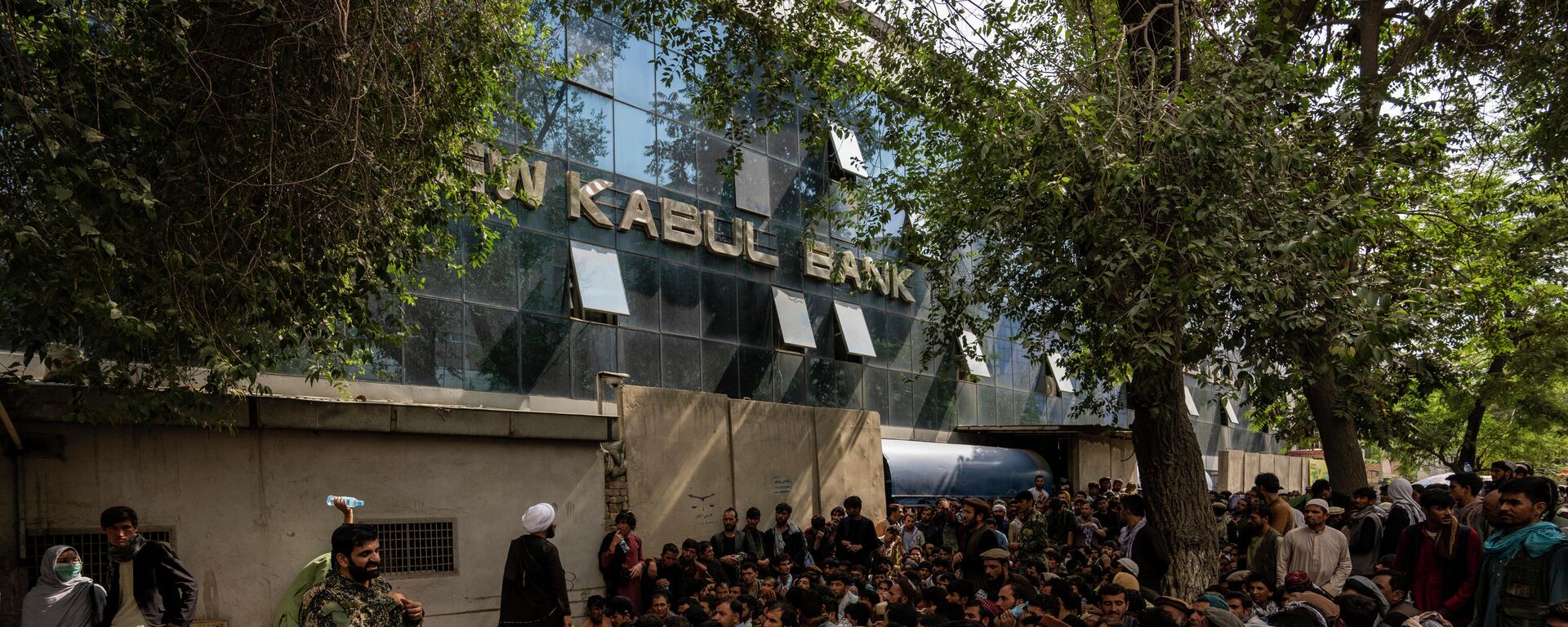
17 December 2021, 06:12 GMT
Why is Recognition a Problem for the Interim Afghan Gov't?
The agenda for the latest OIC meeting did not include recognition of the Taliban leadership by the Muslim world, but focused on rescuing them first from the economic and social crisis, says Sabtain Ahmed Dar.
"After positive outcomes from the OIC meeting, it is generally being hoped by the political analysts that recognition of Taliban will be on the agenda in the follow up OIC meetings on Afghanistan", Dar suggests, adding that in the late 1990s, Pakistan, Saudi Arabia, and the United Arab Emirates (UAE) recognised the first Taliban government.
The question of the recognition of the Taliban government is crucially important for Afghanistan's sovereignty and independence, believes Dar.
"If the Taliban government is not recognised by the international community or Muslim World, Afghanistan will become a closed society detached from the entire world", the Pakistani academic says, adding that foreign investment, expertise, and help from the world depends on this recognition, which, in its turn, depends upon the conduct and ability of the Taliban to govern Afghanistan.
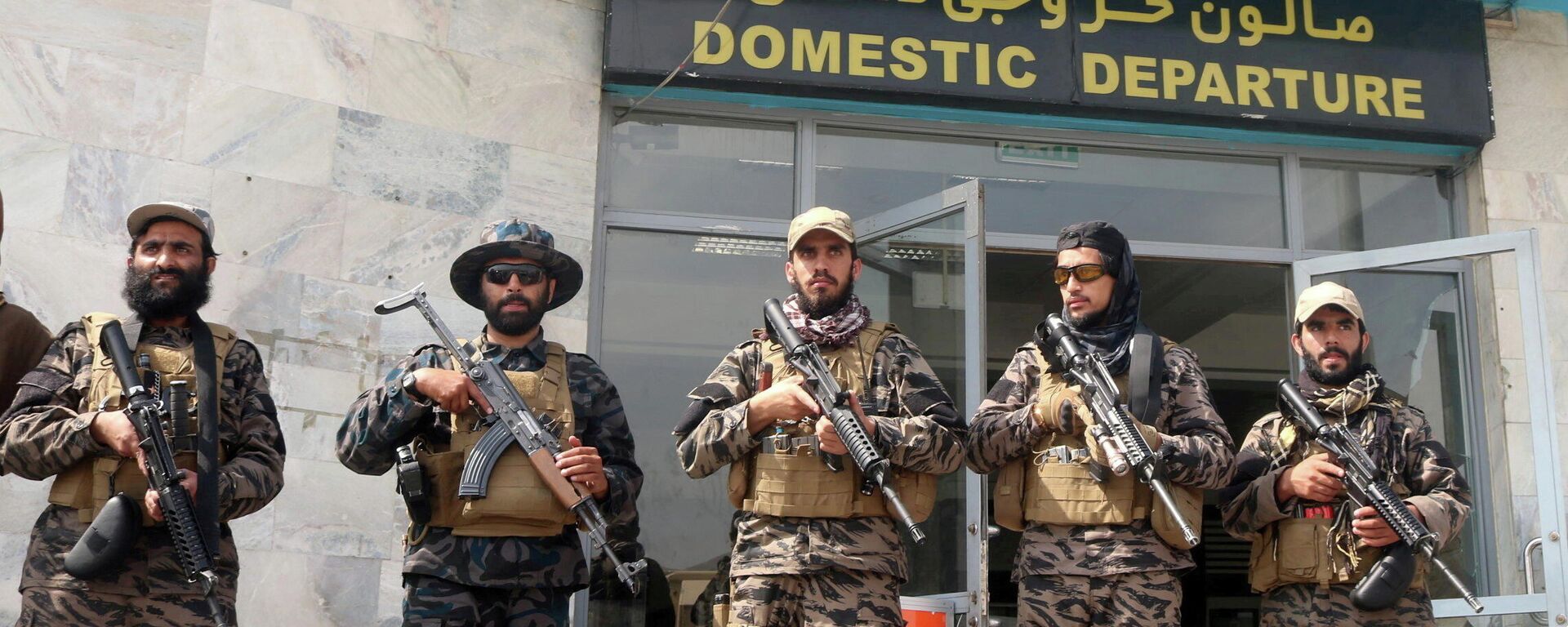
13 September 2021, 12:14 GMT
The Taliban interim authorities were formed in September 2021. Even though the Afghan caretaker government is not recognised, the Taliban can be considered the country's "legal" authorities and
can be dealt with on the international arena, argued Professor Ben Saul, Challis Chair of International Law at the University of Sydney, Australia, in his 15 December
op-ed for the Hague-based think tank International Centre for Counter Terrorism (ICCT).
According to Saul, currently many more states than in the 1990s have interests in cooperating with the Taliban, which in some sense raises the probability of its future recognition. These potential spheres of collaboration include "counter-terrorism, counter-narcotics, border security, economic development (such as infrastructure and mining), or technical assistance".
Last week, President Putin noted that
Moscow is "working with all [its] international partners to come up with a consolidated decision" regarding possible recognition of the Taliban. Earlier, in October, the Russian president said that the Afghan Islamic organisation may be excluded from the ban list through the UN Security Council if the situation in Afghanistan continues to improve. The same month, nine states participating in
the Moscow Format Consultations, acknowledged that
"practical engagement with Afghanistan needed to take into account the new reality, that is the Taliban coming to power in the country, irrespective of the official recognition of the new Afghan government by the international community".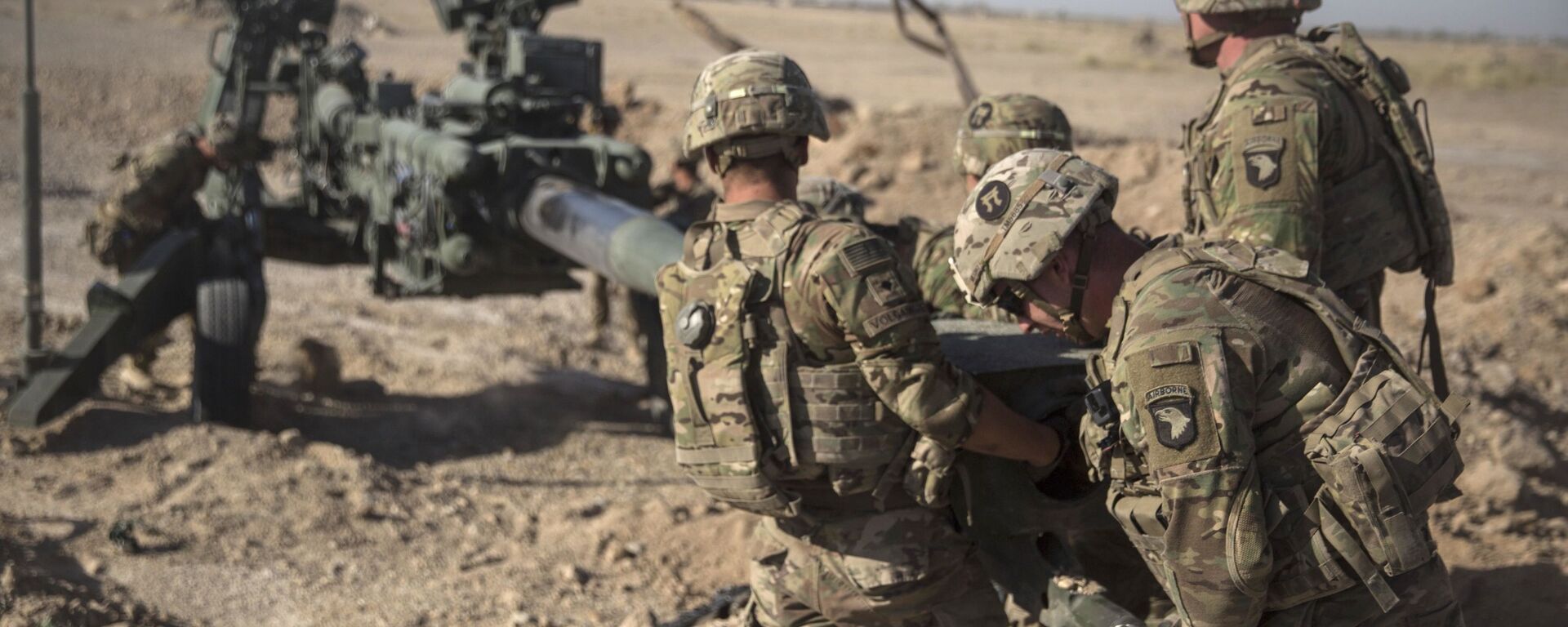
10 September 2021, 15:00 GMT
Five Factors of Afghanistan's Stability
The viability of the Taliban government as well as stability of the political and economic situation in Afghanistan depends on five factors, according to Dar:
First, the Taliban government needs to counter terrorism and politically reconcile to a point where intra-Afghan parties are incorporated to govern the country with a policy of inclusiveness.
Second, Afghanistan has to strike agreements with international financial institutions to establish a new monetary framework.
Third, the Taliban should protect elite Afghan families who have the capital and expertise to revive the country's core industrial infrastructure and give a boost to the economy.
Fourth, the Taliban must establish joint ventures of state institutions to provide basic services to Afghans and also let the private sector work independently to contribute to society.
Fifth, security must be considered at all levels by the Taliban government. It must deepen social inclusion to eradicate unnecessary fear and uncertainty from the mind of the general public.
It is too early to claim that breakthroughs will come immediately in short intervals, the Pakistani academic highlights, adding that only concerted actions of regional and external players could help the country rebuild its economy.
*The Taliban is an organisation under UN sanctions over terrorist activities.
